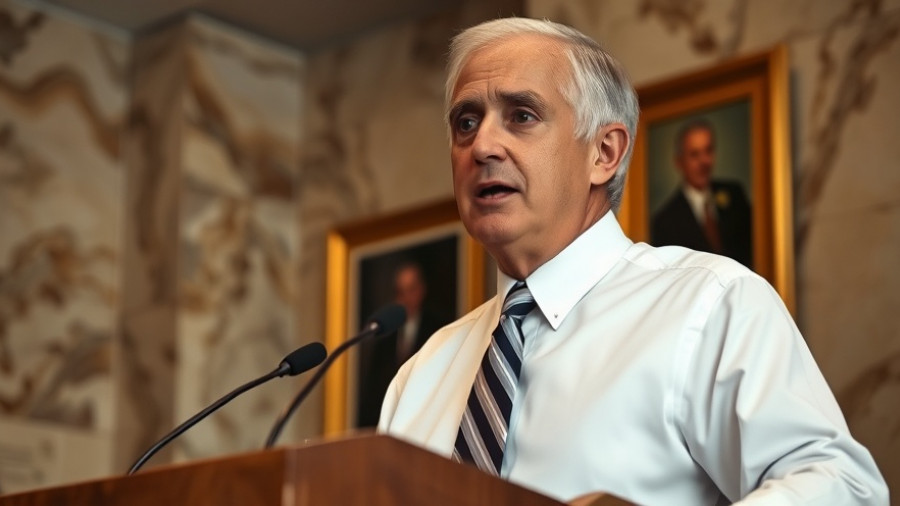
Breaking Down Jackson County's Property Tax Reforms
The recent announcement from Jackson County's new executive marks a significant shift in the way property assessments are handled. In a press conference held at the Jackson County Courthouse, the newly appointed executive laid out plans to cap commercial property assessments at a maximum of 15%. This decision emerged amidst rising concerns among local business owners about steep increases in their property taxes.
In Interim Jackson County Executive shares updates on property assessments, the discussion dives into crucial tax reforms affecting local businesses, exploring key insights that sparked deeper analysis on our end.
Tax Relief Amidst Growing Concerns
Property owners, like Davis from J Rigor coffee shops, expressed alarm over the potential for property tax increases by up to 626%, which he called a "death sentence for small businesses." The pressure from these looming assessments has intensified, especially with property tax bills expected to be mailed out in a month, due at the end of the year. The new executive’s commitment to maintaining assessments for commercial properties valued up to $5 million at no more than 15% seeks to alleviate some of this burden.
Historical Context: A Changing Landscape
Jackson County has witnessed a tumultuous political landscape, particularly with the recent recall of the previous executive. This political upheaval places the current administration under pressure to quickly implement effective changes. The interim executive’s proposal to cap property tax assessments comes as part of a broader push for property tax reform that has garnered the attention of local legislators. This historical context adds weight to the urgency of ensuring that small businesses can thrive amidst challenges.
The Impact on Local Businesses and Residents
With property tax notices rolling out this summer, many local business owners expressed frustration over previously incorrect assessments. Stakeholder Preston Smith pointed out discrepancies where one commercial property reportedly shot from a valued price of $173,000 to $9.4 million between 2023 and 2025, which spurred the need for reform. For local residents living in Kansas City’s vibrant neighborhoods, these assessments translate to higher living costs, affecting not only small businesses but also everyday living.
Community Engagement: A Collective Concern
The potential for increased property taxes has struck a chord across Kansas City. Local business owners, community leaders, and residents are engaging in discussions surrounding these reforms. The Jackson County legislative assembly is also planning to review a resolution addressing property tax assessments, indicating a collective momentum towards seeking transparency and fairness in taxation. The sentiment that these tax increases could jeopardize local businesses leads to broader implications for Kansas City’s economy.
What This Means for Kansas City Neighborhoods
As property assessments are a crucial aspect of living in Kansas City, the proposed reforms hold significance for various neighborhoods and the KC community at large. Areas that thrive on their small businesses, like retail shops and local cafés, could see a shift in customer dynamics depending on how these tax reforms play out. Maintaining a stable tax rate becomes pivotal for nurturing the best neighborhoods in Kansas City.
Looking Ahead: Future Predictions and Opportunities
If the interim executive’s proposals are enacted successfully, it could set a precedent for future tax policies in the region. The expectations are high for municipal leaders to monitor the effects of these changes closely. If successful, there may be an opportunity to expand support for small businesses, thereby fostering a renaissance in local entrepreneurship, encouraging Kansas City’s urban lifestyle, and enhancing the community spirit.
Feedback and Dialogue: A Call to Action for Residents
Staying informed and engaged is essential. Residents are encouraged to share their thoughts and experiences regarding property assessments and taxes. This kind of community dialogue can cultivate the vibrant cultures that define Kansas City neighborhoods. If you have a story to share or want to contact us for more details, drop us an email at team@kansascitythrive.com.
 Add Row
Add Row  Add
Add 




Write A Comment